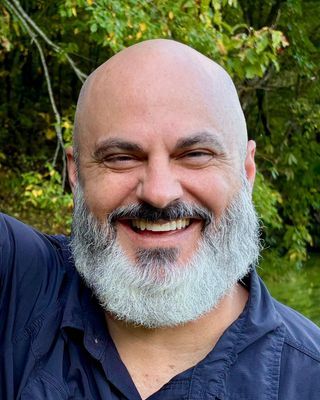Session 1: Introduction and Overview of the IFS Model of Therapy: Skill #1: Detecting Parts and Burdens in Christian Contexts
In Session 1, we will explore the foundational principles of the IFS model of psychotherapy and how it interfaces with ancient Christian theology and practices. Participants will be invited to explore their own inner landscape in order to learn from the inside-out, setting the foundation to learn in Session 2 and 3, how to explore the inner landscape of those in their care. We will use clusters of parts such as the self-improvement task force and the decision-making committee, as examples for participants to follow along and put fundamental skill #1 of 4 into practice within Christian contexts. The importance of detecting healthy, Spirit-led and Spirit-like (Self-led and Self-like) parts will be emphasized by exploring common parts of Christians that can easily get confused with core-Self.
Session 2: Self & Unburdening our Burdens: Skill #2 & #3: Unblending from parts & speaking for them, self-care of the provider and clinical applications
In this session, you will be introduced to some of the ways IFS is used as a tool for spiritual direction, helping participants identify which parts of themselves are blocking their ability to cultivate a deeper relationship with God. IFS techniques are often used as a tool to bridge the head/heart gap that often shows up in our self-care practices of faith.
You’ll learn about integrating prayer techniques with IFS such as praying for parts (intercessory prayer) and praying from parts (often found in Psalms). We’ll explore how unburdening happens and how it creates a spaciousness inside, allowing the Holy Spirit (Self-energy) to flow more freely in one’s life. Unburdening parts of our personalities leads to a clearer view of one's Imago Dei (God Image) giving us a vision of health. Then these unburdened parts of our personalities are able to fulfill their God-given purpose.
Session 3: What to do with our awareness: Skill #4: Tracking and mapping the Inner Critic
In IFS therapy, we don’t judge the “problem” parts; rather, we seek to understand them and appreciate their efforts to help, without losing sight of the ways they cause problems, especially the inner critic that often gets confused with the enemy. Similar to how Jesus approached sinners, when we approach our most difficult parts in love while naming the behaviors that were harmful to them (speaking truth in love), these parts can experience healing too.
We will use the skills acquired in sessions 1 & 2 to bring core-Self to the inner critic, emphasizing the importance of intentional self-talk. For example, instead of our self-talk being critical, saying “I can’t believe I keep messing up like this!,” the criticism may be transformed into a gentle corrector, saying “Okay, so we did that again, how can I learn from this and what can I do differently next time?”
We will highlight one of the qualities of core-Self found in Matthew 11:28 that is not often mentioned, gentleness; and draw on ancient wisdom from St. Paul in the book of Romans where he writes about not wanting to do things that he finds himself doing and wanting to do things that he can’t seem to accomplish. IFS techniques offer tools to help ease this inner tension with results of mental clarity and calmness, allowing participants to make confident choices on a path to peace.
There will be designated times for Q & A throughout the workshop.
Each session will include experiential exercises to help you put the concepts into practice.





